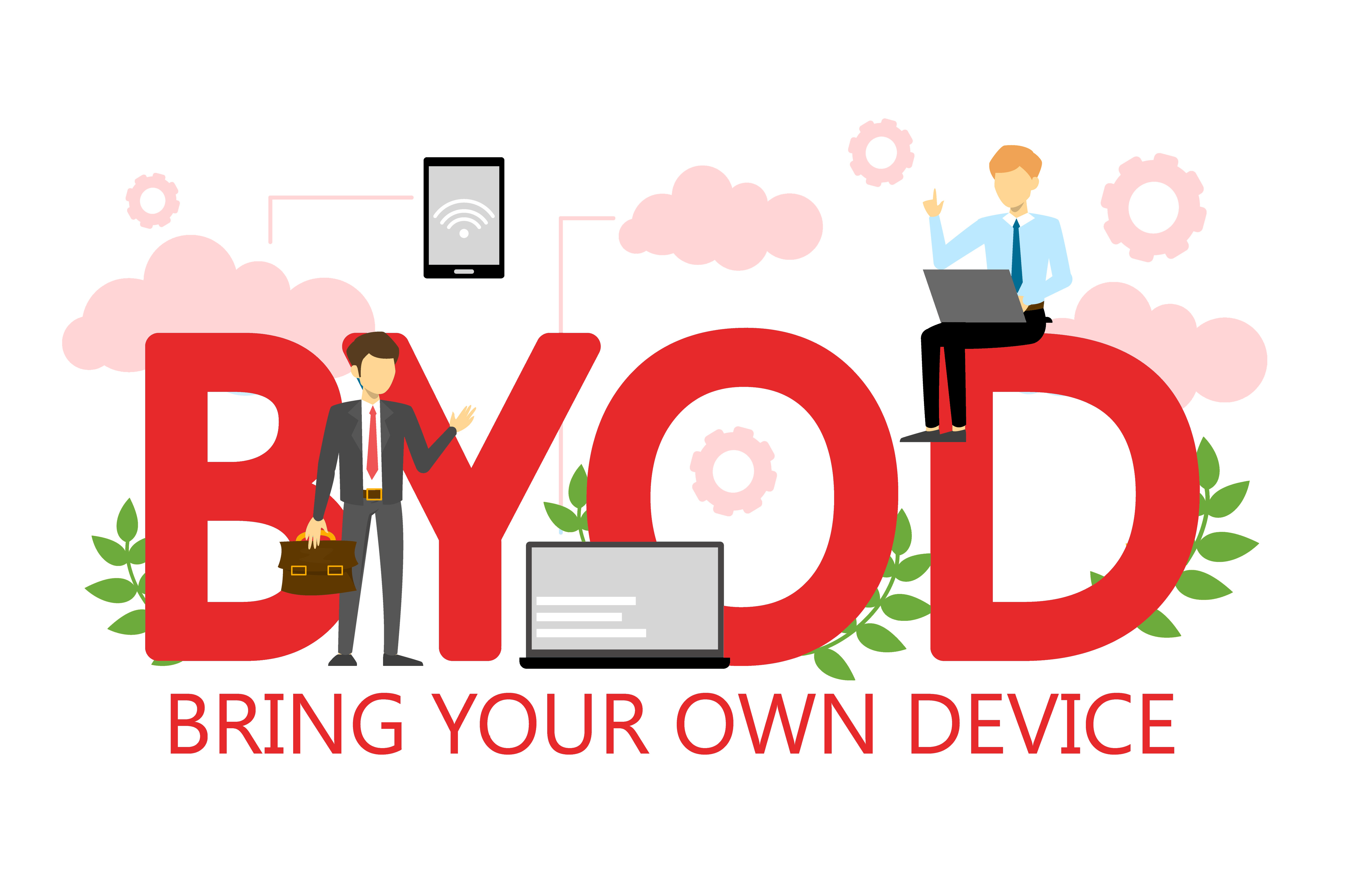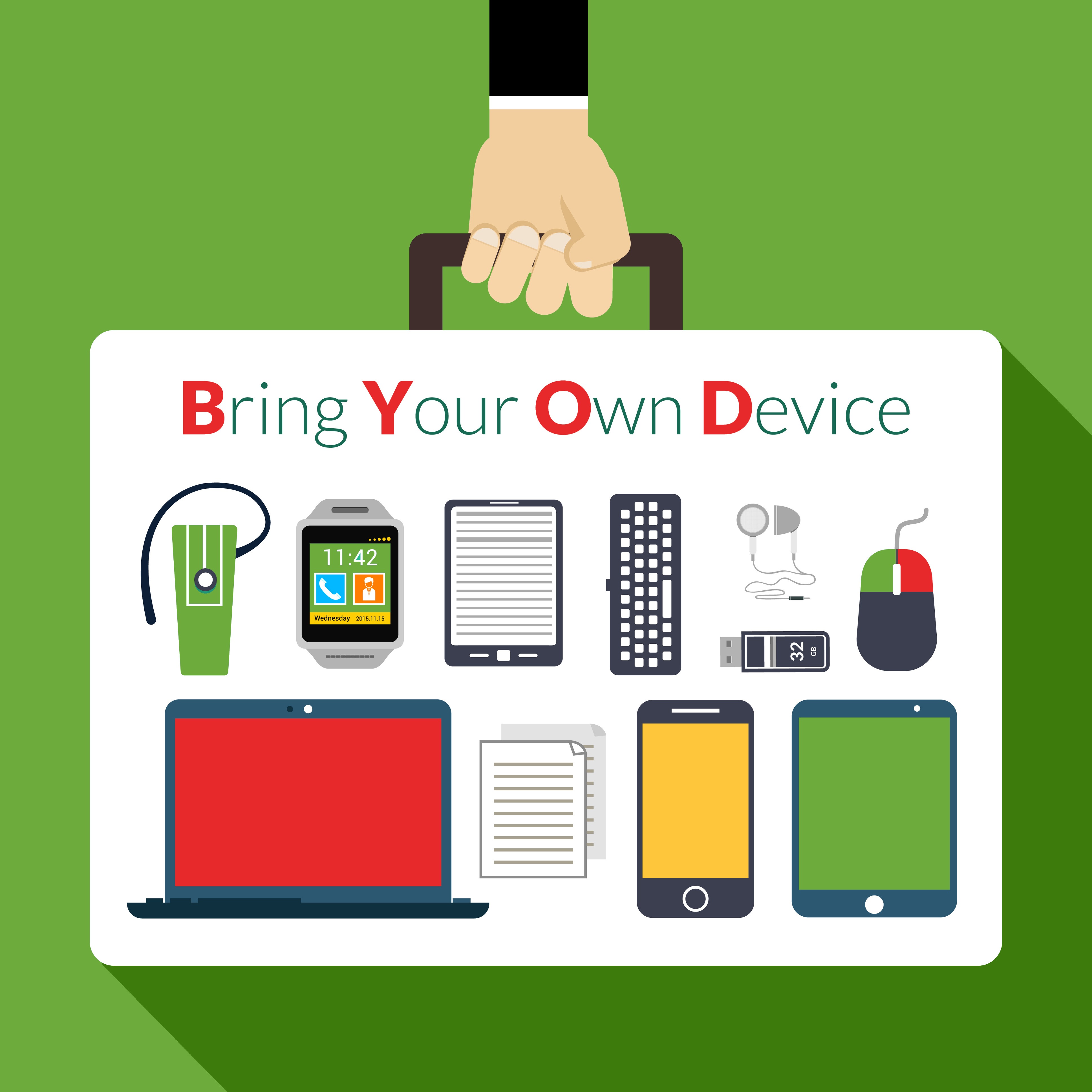
Bring Your Own Device (BYOD): benefits and considerations
BYOD is the term used to refer to “Bring Your Own Device” practices in the workforce. It is used to offer flexible working arrangements for employees. In light of COVID-19, many businesses adopted remote working at short notice, leaving little time to provide employees with alternative hardware, assuming the budget was there in the first place. Some businesses had no choice but to allow employees to use their personal devices for work.
Even before the pandemic BYOD was becoming increasingly popular, alongside trends such as hot desking and agile working. Cisco’s Secure Remote Work 2020 report shows that in 2020 95% of organisations allow personal devices in some way in the workplace, and over 80% of employees carry out work tasks using their personal device.
Despite its clear benefits, BYOD remains both an opportunity and challenge. In order to manage the associated risks employers must ensure they have the correct measures in place to protect their business, employees and data.

The benefits
- Save money – Helps businesses cut hardware and service costs by eliminating the need to buy employees individual devices and equipment. BYOD policies are especially convenient for smaller businesses with smaller budgets
- Boost employee productivity and satisfaction – 53% of enterprises say the mobility BYOD provides improves business processes and productivity. There is a growing desire in the modern workforce to have choice in whether they use their own device for work tasks. Businesses can benefit from a more engaged and productive workforce by allowing employees to use devices they are familiar and comfortable with.
- Have up-to-date technology – Not only will employees be more likely to look after devices they own themselves, but the technology chosen by employees is likely to be more up to date than businesses can offer everyone. More up-to-date technologies often features more advanced security and faster processors. Win-win for everyone!
- Enable remote work – Reduces barriers for your remote workers and enables them to work and connect online no matter where they are, securely.
- Sustainability – Reduces the environmental impact of raw material and power consumption.
However, for all the benefits, if not set up correctly BYOD can also open the door to new risks. To avoid potential threats, businesses must understand what the risks entail and how to equip their business with extra protection to secure their data.
The considerations
- Data protection – 72% of companies cite data leakage/loss as the top security concern for BYOD, and many businesses are worried about unauthorised access to company data.
- Maintaining cyber security posture – Implementing BYOD can add work to those tasked with maintaining the devices and security. A compromised device can open your network up to malware.
- Lack of firewall or anti-virus software – Employees are encouraged to regularly update firewall and anti-virus software when utilizing their own devices. Not doing so creates weak networks.
- Accessing unsecured Wi-Fi – Since employees use personal devices outside of work, you risk them accessing unsecured Wi-Fi at airports, coffee shops, or even their own home. Unsecured networks can provide access to your company network.
- Lost or stolen devices – If devices with company data are lost or stolen this could give unwelcome individuals access to your business information. Especially if devices aren’t secured with passwords or passcodes.
Without the correct security measures in place, each of these risks can pose a threat to your organisation’s data. Before introducing BYOD to your business, you must develop a security plan that outlines employee regulations. You must also educate your employees on the potential threats of using a personal device for work, as well as the best security practices.
The majority of the risks listed can be tackled with the right security measures and policies in place. We secure our clients with Microsoft 365 Business Premium. Business Premium’s advanced security features ensure your business has a proactive approach to I.T. and data security.
Pros and cons aside, in a recent survey 92% of organisations not offering BYOD said it was likely or very likely that staff were already using personal devices in the workplace regardless of policy. It is more secure to implement a BYOD policy in your business to avoid any security risks unknown to you.
Should your organisation have a BYOD policy?
More than 50% of employees haven’t received any instructions for BYOD in the workplace. Despite improved productivity and other positives, using a personal device for a work-related task without instructions can pose a security risk. Such a policy is a good thing.
You have two options for BYOD:
-
Use company approved apps to access work and data without enrolling your device with Microsoft Intune (part of Microsoft Business Premium).
- Let your company manage your device securely with Microsoft Intune (part of Microsoft Business Premium).
Every business is different. There is no single method or policy. The size, culture, ambition and leadership of your business will influence your implementation. By using the correct BYOD policy and security measures, you enable your business to move to a lower risk security posture.
Of course, some people want to draw a line between work and personal life, which is understandable. But, like it or not BYOD is becoming more common in the modern workforce, so it is something to consider.
If you want to learn more and start implementing BYOD in your organisation, contact our team. We’re happy to talk you through your options and how we can help manage your organisation’s security!

